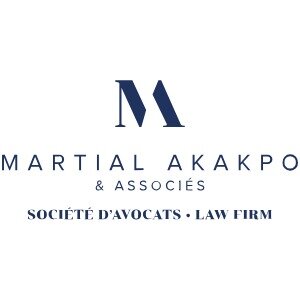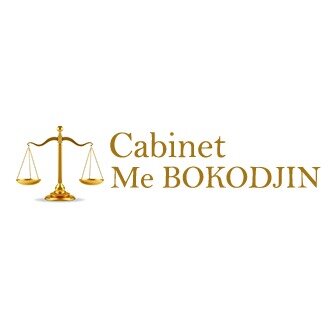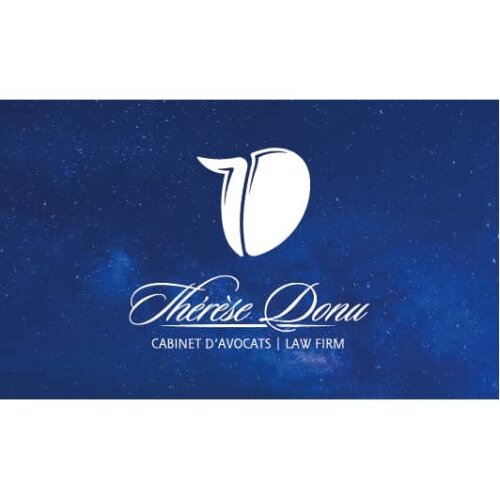Best Licensing Lawyers in Togo
Share your needs with us, get contacted by law firms.
Free. Takes 2 min.
Or refine your search by selecting a city:
List of the best lawyers in Togo
About Licensing Law in Togo
Licensing in Togo refers to the legal framework that governs the granting of licenses for various activities, such as operating a business, practicing a profession, or using certain intellectual property rights. Obtaining the necessary licenses is crucial to ensure compliance with the law and avoid legal issues.
Why You May Need a Lawyer
You may need a lawyer for licensing matters in Togo if you are starting a business, obtaining a professional license, dealing with intellectual property rights, or facing legal disputes related to licensing agreements. A lawyer can provide valuable legal advice, help you navigate complex legal processes, and represent your interests in negotiations or legal proceedings.
Local Laws Overview
In Togo, licensing laws are regulated by various government agencies, such as the Ministry of Commerce, Industry, and Promotion of the Private Sector, the Ministry of Culture, Arts, and Tourism, and the National Institute of Industrial Property. These laws define the requirements, procedures, and conditions for obtaining different types of licenses. It is important to comply with these laws to avoid legal consequences.
Frequently Asked Questions
1. What types of licenses are required to start a business in Togo?
Depending on the nature of your business, you may need licenses from the Ministry of Commerce, Industry, and Promotion of the Private Sector, the Ministry of Health, and other relevant government agencies.
2. How can I protect my intellectual property rights in Togo?
You can protect your intellectual property rights by registering trademarks, patents, and copyrights with the National Institute of Industrial Property in Togo.
3. What are the consequences of operating a business without the necessary licenses in Togo?
Operating a business without the required licenses in Togo can result in fines, closure of the business, legal actions, and reputational damage.
4. How long does it take to obtain a license in Togo?
The duration of the licensing process in Togo varies depending on the type of license and the complexity of the application. It can take a few weeks to several months to obtain a license.
5. Can a lawyer help me appeal a decision to deny a license?
Yes, a lawyer can help you appeal a decision to deny a license by filing the necessary legal documents, presenting arguments, and representing you in administrative or judicial proceedings.
6. Are there any restrictions on foreign nationals obtaining licenses in Togo?
Foreign nationals may face certain restrictions or additional requirements when obtaining licenses in Togo, such as having a local partner or complying with specific regulations for foreign investment.
7. What are the common issues that can arise in licensing agreements?
Common issues in licensing agreements include disputes over intellectual property rights, breach of contract, non-payment of royalties, and termination of the agreement.
8. How can I renew my license in Togo?
You can renew your license in Togo by submitting the necessary documents and fees to the relevant government agency before the expiration date of the license.
9. Can a lawyer negotiate licensing agreements on my behalf?
Yes, a lawyer can negotiate licensing agreements on your behalf to ensure that your interests are protected, and the terms of the agreement are fair and enforceable.
10. How much does it cost to hire a lawyer for licensing matters in Togo?
The cost of hiring a lawyer for licensing matters in Togo depends on the complexity of the case, the lawyer's experience and expertise, and the billing structure (hourly rate, fixed fee, contingency fee, etc.). It is recommended to discuss the fees and payment terms with the lawyer before engaging their services.
Additional Resources
For more information on licensing laws in Togo, you can visit the official websites of the Ministry of Commerce, Industry, and Promotion of the Private Sector, the Ministry of Culture, Arts, and Tourism, and the National Institute of Industrial Property. You can also seek guidance from legal aid organizations, business associations, or professional licensing consultants in Togo.
Next Steps
If you need legal assistance with licensing matters in Togo, you should consider consulting with a qualified lawyer who specializes in licensing law. A lawyer can provide you with personalized legal advice, represent your interests, and help you navigate the complexities of the licensing process. Be sure to gather all relevant documents and information related to your licensing issue before meeting with a lawyer to ensure a productive consultation.
Lawzana helps you find the best lawyers and law firms in Togo through a curated and pre-screened list of qualified legal professionals. Our platform offers rankings and detailed profiles of attorneys and law firms, allowing you to compare based on practice areas, including Licensing, experience, and client feedback.
Each profile includes a description of the firm's areas of practice, client reviews, team members and partners, year of establishment, spoken languages, office locations, contact information, social media presence, and any published articles or resources. Most firms on our platform speak English and are experienced in both local and international legal matters.
Get a quote from top-rated law firms in Togo — quickly, securely, and without unnecessary hassle.
Disclaimer:
The information provided on this page is for general informational purposes only and does not constitute legal advice. While we strive to ensure the accuracy and relevance of the content, legal information may change over time, and interpretations of the law can vary. You should always consult with a qualified legal professional for advice specific to your situation.
We disclaim all liability for actions taken or not taken based on the content of this page. If you believe any information is incorrect or outdated, please contact us, and we will review and update it where appropriate.
Browse licensing law firms by city in Togo
Refine your search by selecting a city.











